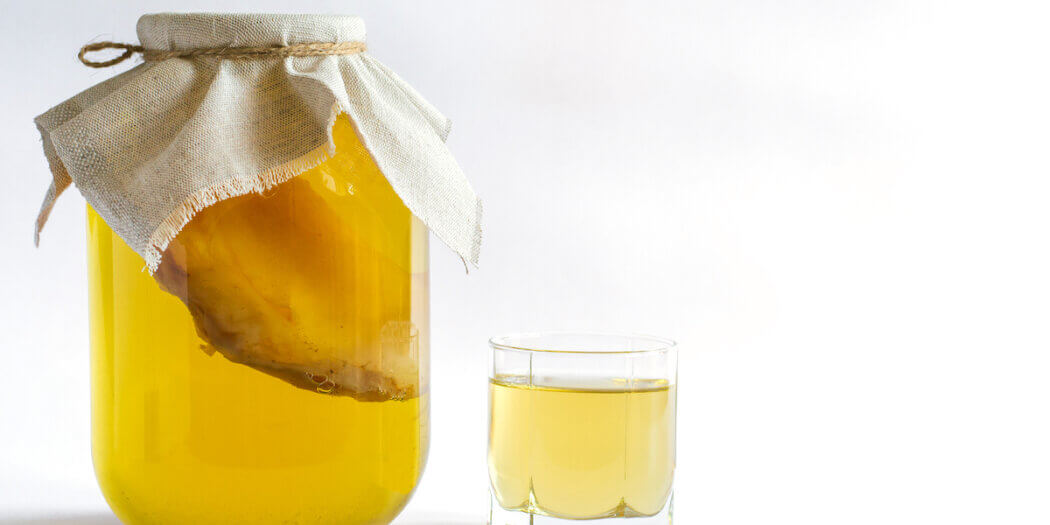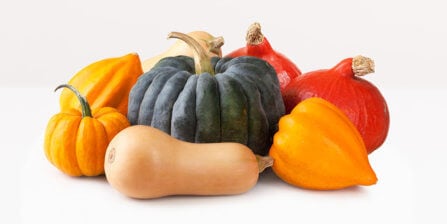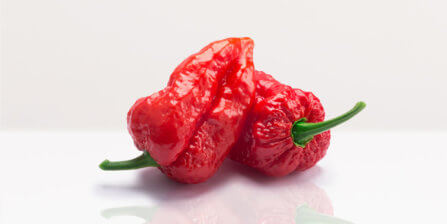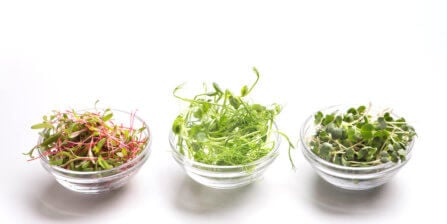Grocery Guides
Kombucha – All You Need to Know | Instacart’s Guide to Groceries

What is Kombucha?
Kombucha is a faintly fizzy fermented beverage made from sweetened tea. A kombucha mother or SCOBY (symbiotic culture of bacteria and yeasts) facilitates the fermentation process. The bacteria and the yeasts in the SCOBY convert the sugar in the tea into ethanol and acetic acid.
Where did kombucha originate from?
It is uncertain exactly where kombucha originated. Most believe kombucha originally came from China over two thousand years ago. The concept then traveled on to Japan and Korea. And from there to Russia and Europe.
How is kombucha made?
Kombucha is made by adding specific strains of bacteria (usually acetic-acid bacteria) and yeast (mostly saccharomyces cerevisiae) to a mixture of brewed tea and sugar. The bacteria and yeast are in the form of a SCOBY. A SCOBY is a thick, slimy disc comprising the microbial agents that will ferment the sugars in the tea. Depending on environmental factors (such as room temperature), the fermentation process can take seven to twelve days. One can add fruit, spices, and/or other flavorings to add interest or hide the ‘earthy’ flavor of kombucha tea.
What is the nutritional value of kombucha?
A six-ounce (100 ml) serving of kombucha contains:
- 16 kcals or 67 kJ
- 3 g carbohydrates
- 5 mg sodium
- 3 g sugar
Most kombucha teas also contain acetic acid, lactic acid, and different strains of beneficial bacteria.
What are the health benefits of kombucha?
Kombucha is considered a functional food and has several potential health benefits.
- Like kefir, sauerkraut, and kimchi, kombucha is a product of fermentation. Therefore, it contains several probiotic microorganisms.
- Tea, especially green tea, is an excellent source of antioxidants.
- Kombucha may contain small amounts of vitamins and minerals. When yeast metabolizes the sugars, vitamin C, B1, B6, and B12 may be produced.
- Acetic acid is one of the by-products of fermentation. Due to its low pH, acetic acid could suppress the growth of undesirable yeast and bacteria.
What should I look for when buying kombucha?
How do you decide which kombucha to buy? Because kombucha is essentially a ‘live’ product, there are a few things to consider when choosing one from the supermarket shelf.
- Packaging is important. The probiotic cultures may cause plastic or stainless-steel bottles to degrade. Select kombucha in glass bottles. Even better, choose kombucha in dark glass bottles. The darker glass is extra protection against the degradation of some of the probiotics.
- Traditionally, kombucha is made with green or black tea. Read the ingredients label to ensure that you are drinking the real deal and that there are no flavorings or essences to mimic the flavor of the tea.
- Sugar content. Kombucha tea cannot ferment without the presence of sugar. However, if you want a low-calorie drink, check the labels for added sugar.
- Check the percentage of alcohol. Alcohol is a natural by-product of the fermentation process. Most kombucha teas will have an alcohol percentage below 0.5 %.
- Kombucha becomes slightly acidic because of the fermentation process. Therefore, it does not need to be pasteurized. In fact, pasteurization will destroy some of the probiotics turning the drink into an ordinary soda. So, if it is the health benefits of kombucha that you are after, choose raw or unpasteurized kombucha.
- Some producers might add probiotics to boost the supposed health benefits of kombucha tea. For the most natural product, look for kombucha brewed using traditional methods without any additives.
How to store kombucha
Bottled kombucha can be stored in the refrigerator for several months. Keeping kombucha at room temperature could cause the fermentation to continue, which will result in a different flavor profile. Kombucha will lose its fizziness being stored in the fridge. However, if you take it out of the refrigerator and leave it to stand at room temperature for a few hours, it will regain some of its carbonation.
How to tell if kombucha is bad
Being a living product, there are a few different things that can happen to bottled kombucha to make it turn bad.
- Mold is a sure sign that your kombucha has gone off. The mold will appear fizzy and colored.
- Brown strings and floating debris may appear unsightly but are not harmful. They are simply strands of yeast, which are a natural part of kombucha.
- Kombucha that has a significantly sour or vinegary taste is over-fermented. While it does not taste pleasant, it isn’t harmful.
- Sediment settled at the bottom of the bottle is a natural phenomenon and does not indicate something wrong with the drinks.
What can I substitute for kombucha?
If you are looking for another probiotic-rich beverage, kefir water is a suitable alternative to kombucha. Shop kefir water.
Kombucha tea is fermented with yeast. If you have yeast intolerance but would still like to enjoy a funky, probiotic-rich drink, you can try rejuvelac instead. Rejuvelac is made by fermenting sprouted grains such as barley, quinoa, rye, or wheat.
Iced-teas are a refreshing, non-alcoholic beverage that can be substituted for kombucha. Bottled teas might not contain probiotics, but they do often contain beneficial antioxidants.
Order with Instacart for your kombucha delivery or pick up
Fizzy living teas are bubbling with gut-loving probiotics. If you want to stock up on probiotic drinks without the hassle of driving to the grocery store, order online with Instacart. A dedicated Instacart shopper will get your order ready for you and have it delivered to your door on the same day.
Most Recent in Grocery Guides

Grocery Guides
Guide to Sustainable Grocery Delivery
Who has time for the grocery store these days? Between work, family and everything else, it feels like a chore we could all do without. That's where sustainable grocery delivery comes in! You get the…
Feb 7, 2025
Grocery Guides
19 Best Milk Substitutes for Baking and Cooking
Milk’s rich texture and neutral flavor make it a staple in countless recipes, bringing creaminess and balance to sweet and savory dishes alike. But what happens if you run out of milk or need a…
Jan 30, 2025
Grocery Guides
15 Best Cheeses for Your Next Charcuterie Board
Let’s face it: The heyday of the store-bought party platter is long gone. Now, the duties of a good host often include curating an impressive charcuterie board. But where do you begin? Charcuterie boards typically…
Jan 21, 2025

 Squash – All You Need to Know | Instacart Guide to Fresh Produce
Squash – All You Need to Know | Instacart Guide to Fresh Produce  Ghost Pepper – All You Need to Know | Instacart Guide to Fresh Produce
Ghost Pepper – All You Need to Know | Instacart Guide to Fresh Produce  Sprouts – All You Need to Know | Instacart Guide to Fresh Produce
Sprouts – All You Need to Know | Instacart Guide to Fresh Produce 

